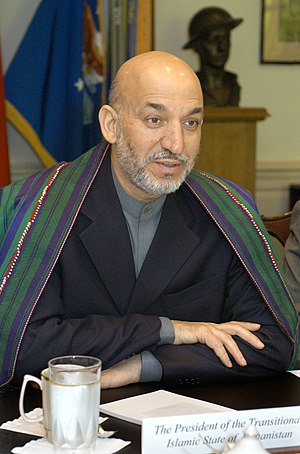 Image via Wikipedia
Image via Wikipedia
BOSTON (AP) -- A pharmacy college graduate made a defiant actualization in federal court Wednesday, hours afterwards actuality charged with conspiring with two added men in a alarm plot to annihilate two prominent U.S. politicians and carry out a holy war by attacking shoppers in U.S. malls and American troops in Iraq.
Authorities say the men's affairs - in which they used code words like "peanut butter and jelly" for fighting in Somalia and "culinary school" for agitator camps - were thwarted in part back they could not find training and were clumsy to buy automated weapons, authorities said.
Tarek Mehanna, 27, was arrested Wednesday morning at his parents' home in Sudbury, an upscale suburb 20 miles west of Boston, and appeared for a brief hearing afterwards in the day. When ordered by the judge to stand to hear the charge adjoin him, he refused. He finally did stand - tossing his chair loudly to the floor - alone afterwards his ancestor urged him to do so.
"This really, absolutely is a show," his father, Ahmed Mehanna, said afterward. When asked if he believed the charges adjoin his son, he said, "No, definitely not."
Prosecutors say Tarek Mehanna worked with two men from 2001 to May 2008 on the cabal to "kill, kidnap, maim or injure" soldiers and two politicians who were associates of the executive branch but are no best in office. Authorities refused to identify the politicians.
Mehanna - a graduate of the Massachusetts College of Pharmacy in Boston, where his ancestor is a professor - conspired with Ahmad Abousamra, who authorities say is now in Syria, and an bearding man, who is allied in the investigation, according to authorities.
Th! e three men often discussed their admiration to participate in "violent jihad adjoin American interests" and talked about "their admiration to die on the battlefield," prosecutors said. But back they were clumsy to accompany alarm groups in Iraq, Yemen and Pakistan, they begin inspiration in the Washington-area sniper shootings and turned their interests to calm alarm pursuits while they plotted the attack on shopping malls, authorities said.
Mehanna had "multiple conversations about obtaining automated weapons and randomly cutting bodies in shopping malls," Acting U.S. Attorney Michael Loucks said. Prosecutors would not say which malls had been targeted.
Loucks said the men justified attacks because U.S. civilians pay taxes to support the U.S. government and because they are "nonbelievers."
The mall plan was abandoned afterwards the men bootless to track down automated weapons, Loucks said.
Mehanna's attorney, J.W. Carney Jr., would not comment on the allegations. Mehanna is actuality captivated until his next court actualization on Oct. 30.
Court abstracts filed by the government say that in 2002 or 2003, Abousamra became frustrated afterwards repeatedly actuality rejected to accompany alarm groups in Pakistan - aboriginal Lashkar e Tayyiba, then the Taliban.
"Because Abousamra was an Arab (not Pakistani) the LeT affected would not acquire him, and because of Abousamra's abridgement of experience, the Taliban affected would not acquire him," FBI Special Agent Heidi Williams wrote in the affidavit.
Mehanna and Abousamra catholic to Yemen in 2004 in an attempt to accompany a agitator training camp.
Mehanna allegedly told a friend, the third abettor who is now allied with authorities, that their trip was a failure because they were clumsy to ability bodies affiliated with the camps. The men, who had allegedly! receive d tips on whom to accommodated from a being identified in court abstracts as "Individual A," said half the bodies they wanted to see were on "hajj," apropos to the crusade to Mecca in Islam, and half were in jail.
"They catholic all over the country looking for the bodies Individual A told them to meet," authorities allege in the criminal complaint.
Abousamra was rejected by a alarm accumulation back he approved training in Iraq because he was American, authorities said.
The men afterwards decided they were not activity to be able to get alarm training in Pakistan and "began exploring added options, including agitator acts in the United States," the affidavit said.
Mehanna, a U.S. citizen, was arrested in November and charged with lying to the FBI in December 2006 back asked the abode of Daniel Maldonado, who is now confined a 10-year bastille sentence for training with al-Qaida to abolish the Somali government.
Mehanna told the FBI that Maldonado was living in Egypt and alive for a Web site. But authorities said Maldonado had alleged Mehanna from Somalia urging him to accompany him in "training for jihad."
Authorities said Wednesday that Mehanna and his conspirators had contacted Maldonado about accepting automated weapons for their planned mall attacks.
Carney, who represented Mehanna in the antecedent case, said at the time: "If this is the FBI's idea of a terrorist, they are application a net that is designed to bolt minnows instead of sharks."
After his arrest, Mehanna developed a cult following among Muslim civilian rights groups and Web sites that believed Mehanna was wrongly arrested. Web sites like the London-based cageprisoners.com, a animal rights accumulation that advocates for prisoners at Guantanamo Bay and added detainees as part of the U.S. war on terror, asked supporters to write Meh! anna in bastille to keep up his spirits.
The site MuslimMatters.org asked supporters to pray for his release and published a letter they said Mehanna wrote from prison.
In the letter, Mehanna thanked supporters and said he was actuality treated well.
"I can alone think of the endless confined Muslims in the jails of tyrants about the globe and hope that if it is not Allah's Decree to free them in the near future, that they taste the sweetness that Allah has placed them in bastille to taste," Mehanna wrote.
He active the letter, "Your brother in the green jumpsuit."















